If you click on a link and make a purchase we may receive a small commission. Read our editorial policy.
The Writers Strike: As the strike nears an end, everything you need to know about why WGA writers are striking
The Writers Guild of America has gone on strike, which might impact your favorite movies and TV shows for some time...

After 146 days, news broke late Sunday that the Writers Guild of America and the Alliance of Motion Picture and Television Producers had come to a tentative agreement on a new three-year contract, meaning that — barring any last minute reversals — the WGA strike of 2023 will soon come to an end.
In a letter to members released Sunday evening, the WGA described the deal as it currently stands as “exceptional — with meaningful gains and protections for writers in every sector of the membership.” The letter noted that the agreement needed to be finalized, at which point it would be sent to the WGA West Board and the WGA East Council for approval; once approved, it will be voted upon by the membership of both groups. At the same time, both groups will vote to life the restraining order on work, effectively ending the strike.
“To be clear, no one is to return to work until specifically authorized to by the Guild,” the letter notes. “We are still on strike until then.”
So, things aren’t over just yet — but the end looks like it might be in sight. But what was the strike all about in the first place? We’re here to break it down.
What is the Writers Guild of America?

Technically, the WGA is a combination of two separate unions: the Writers Guild of America, East, and the Writers Guild of America West. Simply put, it’s a collective representing writers for movies and television shows in the United States.
What is the Alliance of Motion Picture and Television Producers?
The AMPTP is a trade association collectively representing more than 350 U.S. television and film production companies in negotiations not only with the WGA, but other unions in both industries, including the Directors Guild of America, the American Federation of Musicians, and the Screen Actors Guild.
Members of AMPTP include all the major movie studios like Disney, Warner Bros. Discovery, and Paramount Pictures, as well as television networks and streaming platforms like Netflix, Apple TV+, and Prime Video.
Why is the strike happening?
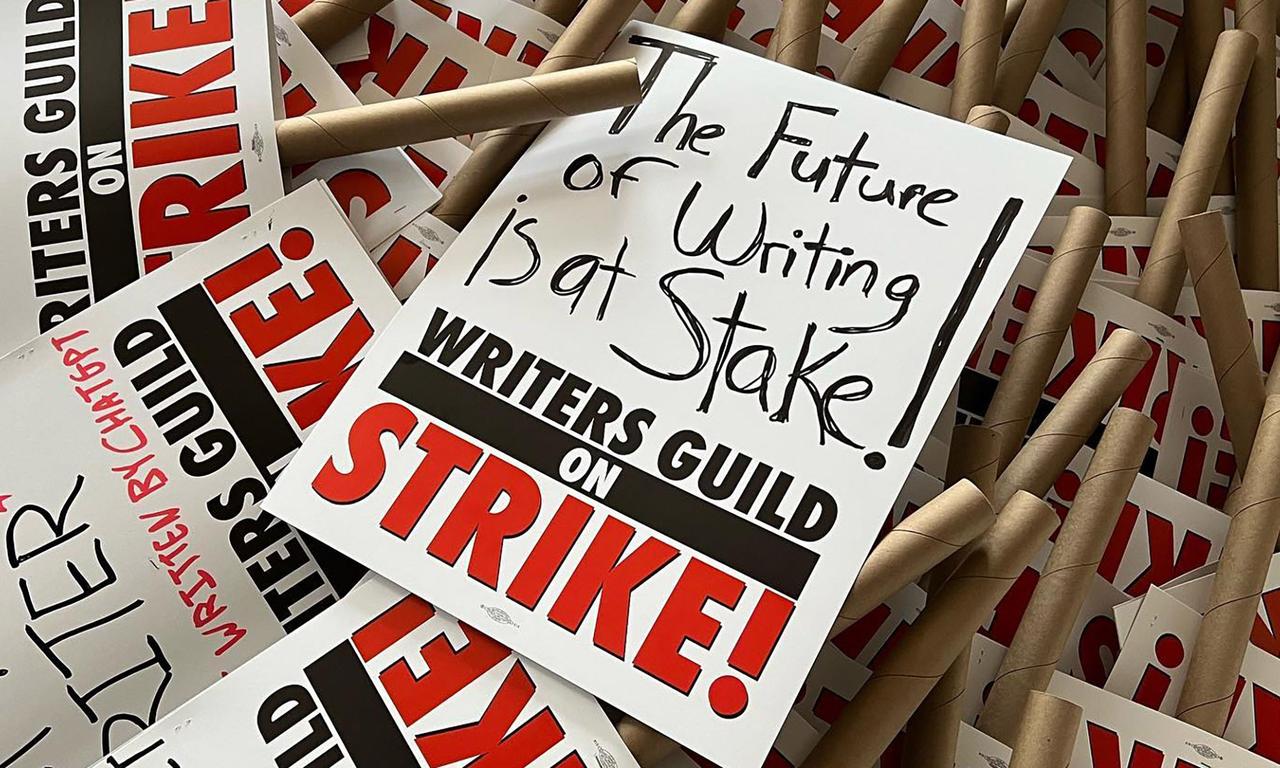
In its simplest terms, the strike is happening because the WGA and AMPTP couldn’t agree on terms for a new contract before the existing one came to an end. At the heart of the disagreement is a conflict over increasing spending and protections for screenwriters, with the AMPTP rejecting multiple proposals to safeguard the livelihood of thousands of professional writers.
“While company profits have remained high and spending on content has grown, writers are falling behind,” the WGA explained in a statement at the time the strike began. “The companies have used the transition to streaming to cut writer pay and separate writing from production, worsening working conditions for series writers at all levels. On TV staffs, more writers are working at minimum regardless of experience, often for fewer weeks, or in mini-rooms, while showrunners are left without a writing staff to complete the season. And while series budgets have soared over the past decade, median writer-producer pay has fallen. In comedy-variety, writers working for streaming services—which are now the primary platforms for entertainment content—lack the most basic protection of MBA minimums. For screenwriters, compensation has also stagnated over the past four years. Their pay is often stretched out over many months and can be held hostage by producers’ demands for free work. Particularly for screenwriters working at or near MBA minimum, these conditions are untenable.”
The WGA also released a document outlining the many differences in the two parties’ stances as the strike deadline loomed, which underscores the distance between positions of the two parties: requests by the WGA for guarantees of employment terms in writers rooms, streaming residual payments, and safeguards against use of AI writing programs were rejected outright, while requests for specific payment levels were countered with lower levels.
At 12:01 AM Pacific Time on Tuesday, May 2, the existing contract between the WGA and the Alliance of Motion Picture and Television Producers expired and the first Writers Guild of America strike in 15 years began.
Is this the first WGA strike ever?
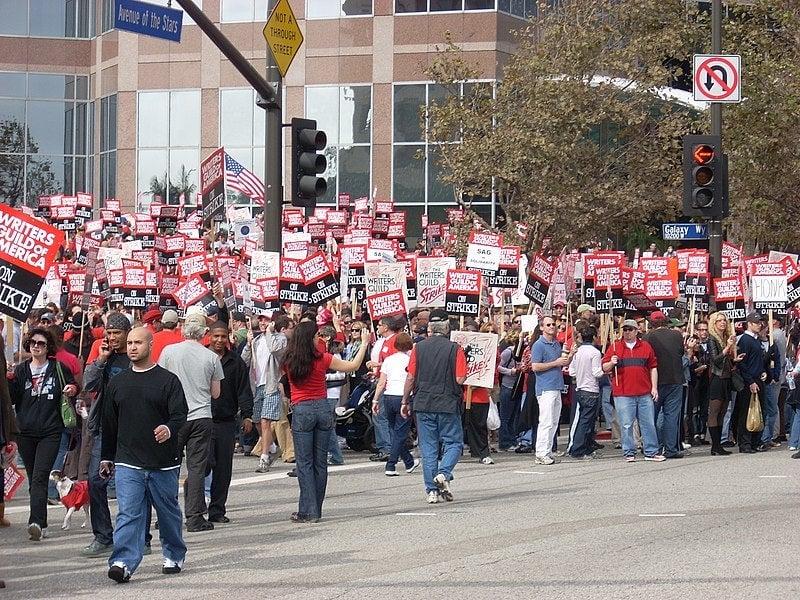
Not in the slightest; the WGA has previously gone on strike in 1960, 1981, 1985, 1988, and 2007. That last strike, which arose from conflict over compensation for DVD and what was at the time described as “new media” amongst other issues, lasted from November 2007 through February 2008, and significantly disrupted television production during that period. (Notably, some shows — particularly soap operas airing on ABC and CBS — used non-union writers to begin production in the middle of the strike.)
What does this mean for my favorite TV shows and movies?
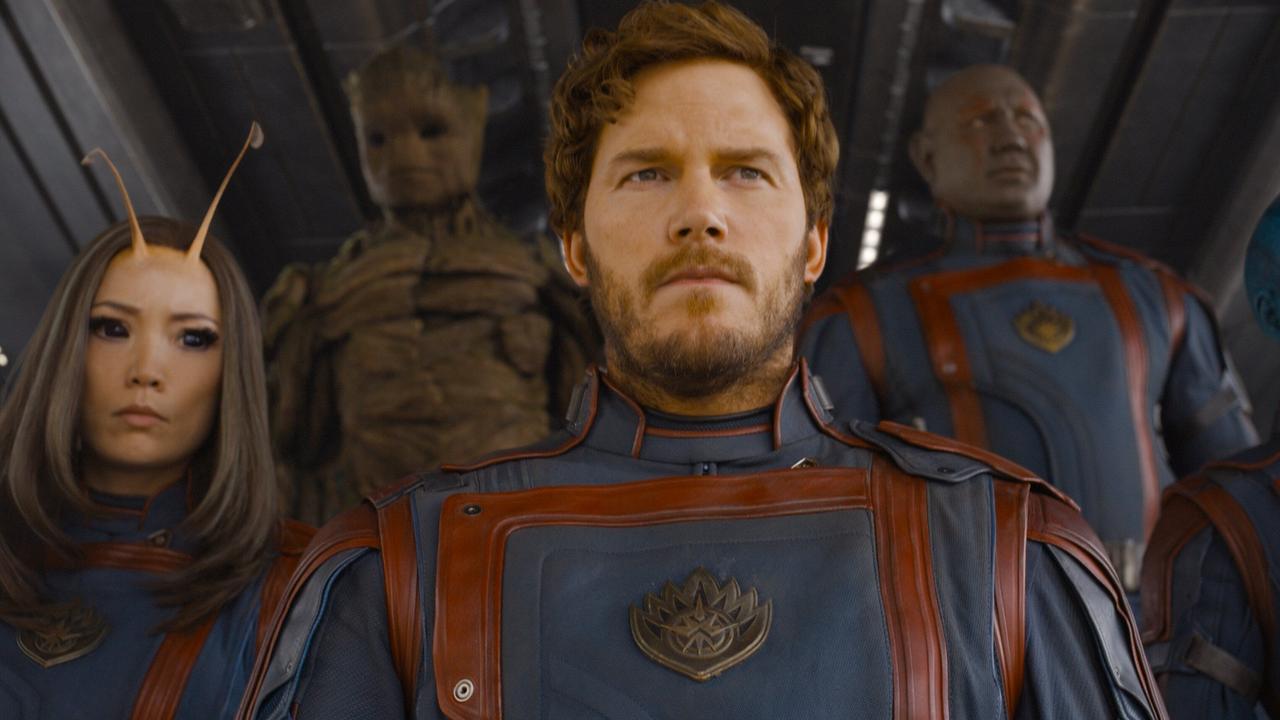
The most immediate impact audiences felt from the strike came from late night talk shows, with The Late Show with Stephen Colbert, Jimmy Kimmel Live!, The Tonight Show Starring Jimmy Fallon, and Late Night with Seth Meyers all going into re-runs effective immediately. HBO’s Last Week Tonight with John Oliver and NBC’s Saturday Night Live quickly followed suit.
Production on a number of movies and TV shows closed down soon after the strike began thanks to picketing — Popverse reported from two pickets and reported from them — including multiple Marvel shutdowns, as well as Max’s The Penguin show, based on the DC character. Such shutdowns have resulted in significant overhauls of release dates for upcoming movies, including Spider-Man: Beyond the Spider-Verse being taken off the release calendar altogether.
Given the length of the strike to date and the time of year, it’s almost guaranteed that — even if the strike ended tomorrow — television and movie production for the next few months is going to be significantly backlogged, suggesting that the traditional “fall TV season” is going to look very, very different this year... and perhaps next.
What do other unions think of the strike?
A number of other unions came out in public support of the WGA strike as soon as it was announced, including the Directors Guild of America, SAG-AFTRA (the Screen Actors Guild), the American Federation of Musicians, and the UK Writers Guild, with the latter asking its members not to work on U.S. productions during the strike’s duration.
In the weeks that followed, the DGA came to its own new deal with the AMPTP, just days before the Screen Actors Guild voted to begin its own strike following a failure to agree upon terms for a new contract. It was the first time since the 1960s that both writers and actors were striking simultaneously.
Have others tried to intervene to bring the strike to a conclusion?
At the beginning of August, Los Angeles mayor Karen Bass said that she was personally ready to intervene in both the SAG-AFTRA and WGA negotiations with studios and producers, issuing a statement that read, “This important inflection point for our city’s signature industry has caused ripple effects throughout our economy as well as that of the state and the country. The impact has spanned every corner of Los Angeles — from the writers and actors on the picket line trying to make ends meet to keep a roof over their head and food on the table, to businesses who rely on the entertainment industry. The economic conditions of the entertainment industry are changing — and we must react and evolve to this challenge. It is critical that this gets resolved immediately so that Los Angeles gets back on track and I stand ready to personally engage with all the stakeholders in any way possible to help get this done.”
California governor Gavin Newsom has also spoken about getting involved, saying that he has been "deeply involved with talking" to both sides, and that he "support[s] WGA and SAG as it relates to their existential stress as it related to streaming and how it’s radically changing the business model, as it relates to artificial intelligence."
If you’re wondering why the LA mayor and California governor want to get involved, one estimate suggested that the WGA strike has cost the California economy somewhere in the region of $3 billion by mid-August, with Newsom suggesting that figure was "probably more" than $5 billion by mid-September.
So what is the remaining timetable?
In the letter released to WGA members on Sunday, September 24, the following is offered as a rough timetable for future action:
“Once the Memorandum of Agreement with the AMPTP is completed, the Negotiating Committee will vote on whether to recommend the agreement and send it on to the WGAW Board and WGAE Council for approval. The Board and Council will then vote on whether to authorize a contract ratification vote by the membership. If that authorization is approved, the Board and Council would also vote on whether to life the restraining order and end the strike at a certain date and time (to be determined) pending ratification. This would allow writers to return to work during the ratification vote, but would not affect the membership’s right to make a final determination on contract approval.
“Immediately after those leadership votes, which are tentatively scheduled for Tuesday if the language is settled, we will provide a comprehensive summary of the deal points and the Memorandum of Agreement. We will also convene meetings where members will have the opportunity to learn more about and assess the deal before voting on ratification.”
With leadership unlikely to vote until Tuesday — day 148 of the strike, if you’re counting — at the earliest, it does look as if the strike is going to break 150 days, but only just.
What will the return to work look like?
As with the start of the strike, it looks as if the first projects to feel the effects of a strike end would be talk shows, with Variety already reporting that late night producers are targeting early October returns for their shows. “I think that the calculation for all these shows is how quickly you can get your crew back to work,” one insider is quoted as saying by the outlet. “There’s probably some conversations to be had with labor relations. We’re so close to the finish line that no one wants to step on a guild landmine. But from a production standpoint, I think you could turn it around pretty quickly.”
From there, expect work to slowly ramp back up elsewhere — or, perhaps, not so slowly based on studio demands, considering we’re looking at a delay of more than a third of a year at this point. That said, the SAG-AFTRA strike continues apace, so it’s not as if production is going to be starting back up anytime soon…
As has been the case for close to 150 days by this point, consider this a continuing story.
We have a calendar of upcoming superhero movies — but will any of them have to shift their release dates even further because of this strike?
Follow Popverse for upcoming event coverage and news
Find out how we conduct our review by reading our review policy
Let Popverse be your tour guide through the wilderness of pop culture
Sign in and let us help you find your new favorite thing.



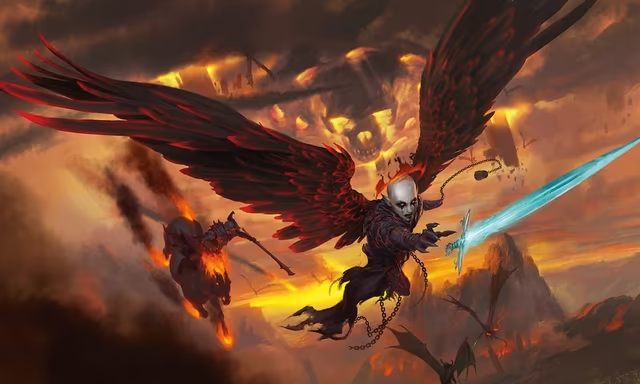
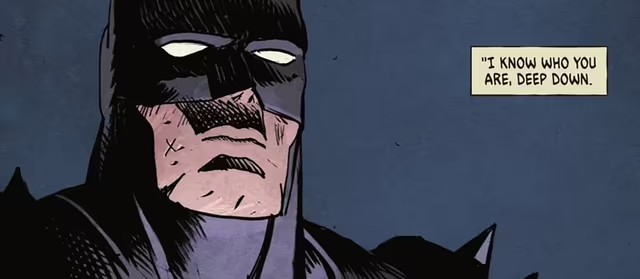
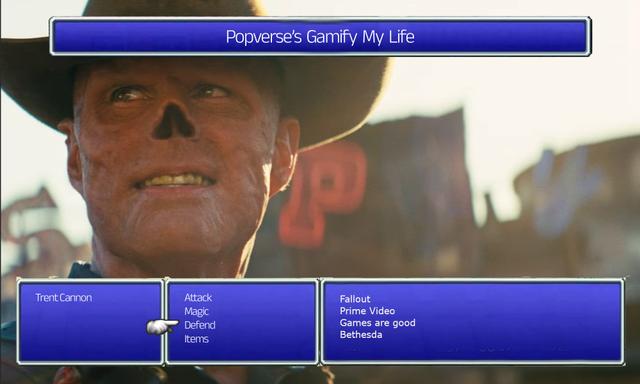

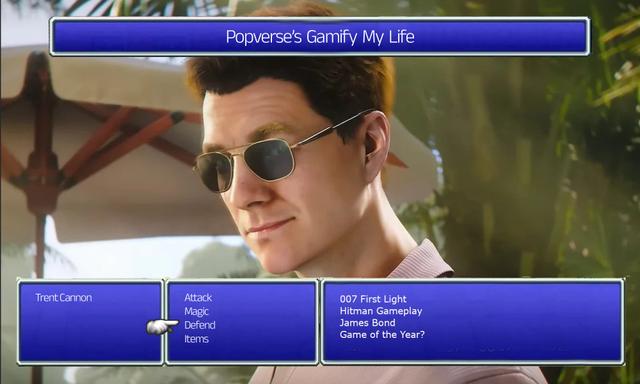








Comments
Want to join the discussion? Please activate your account first.
Visit Reedpop ID if you need to resend the confirmation email.